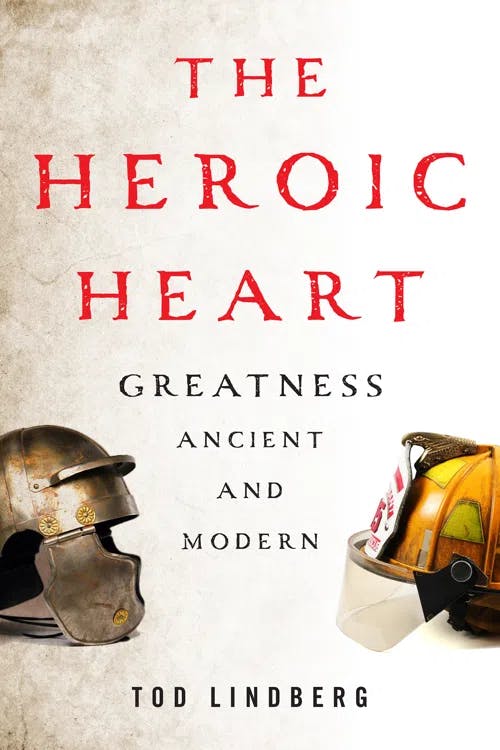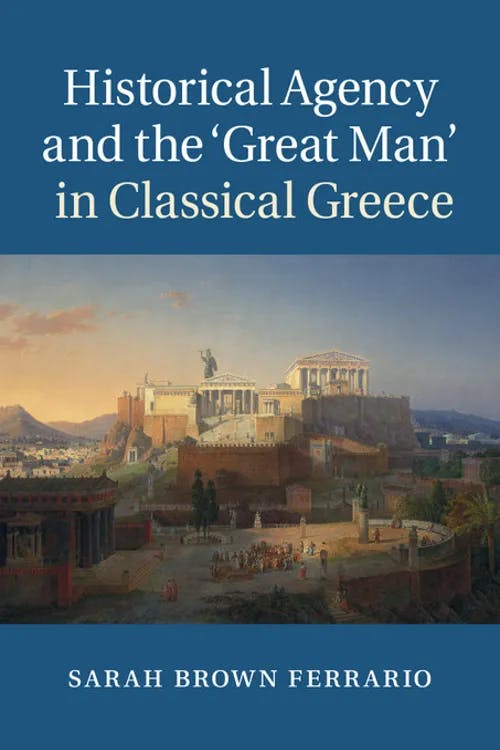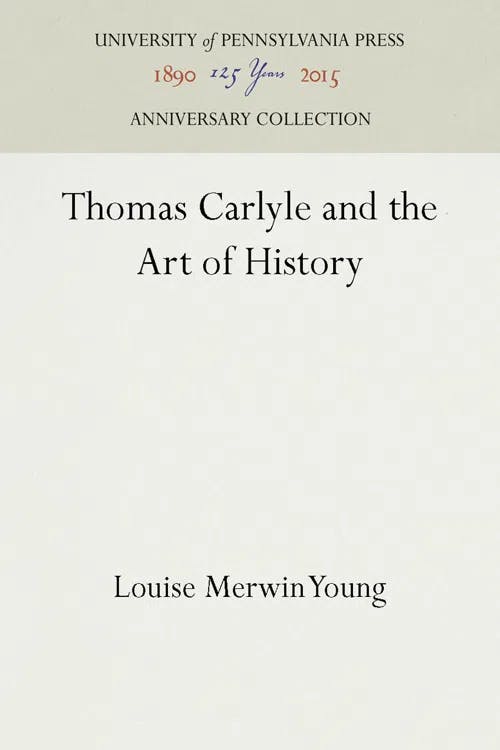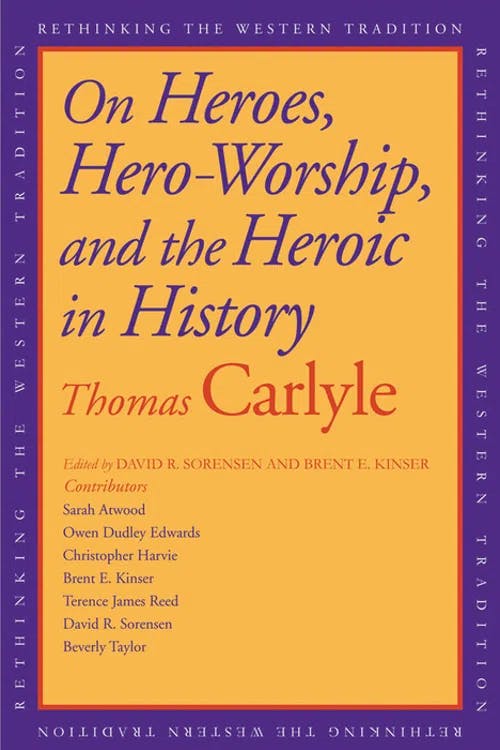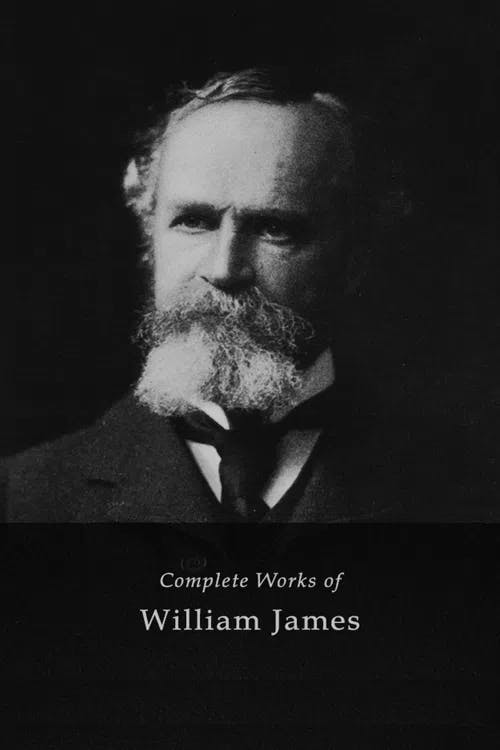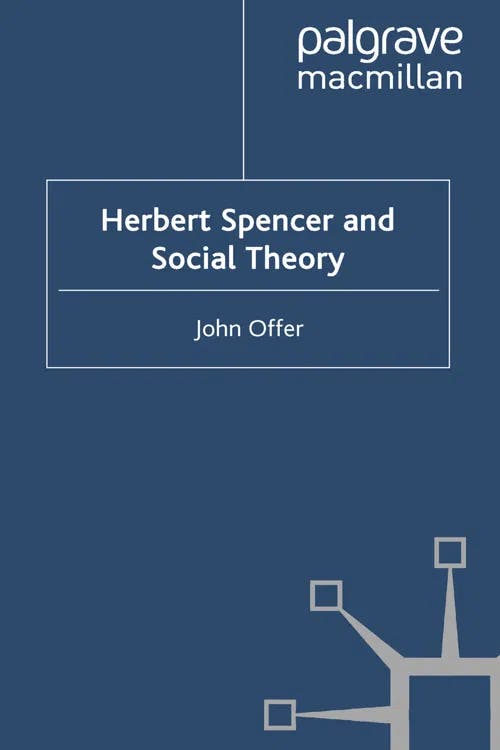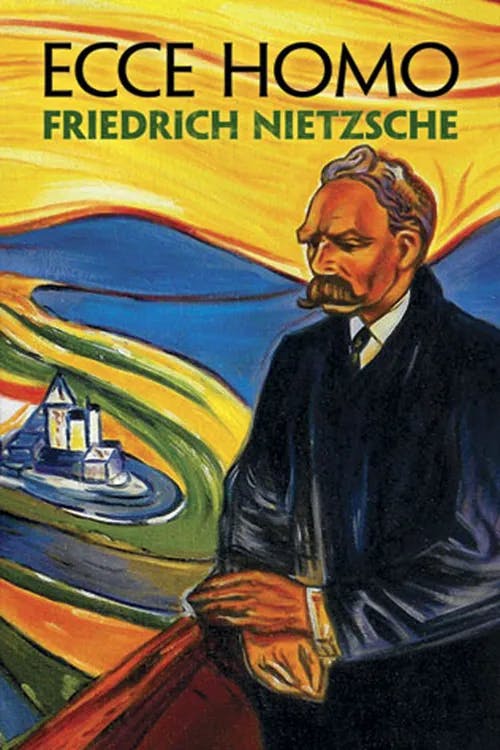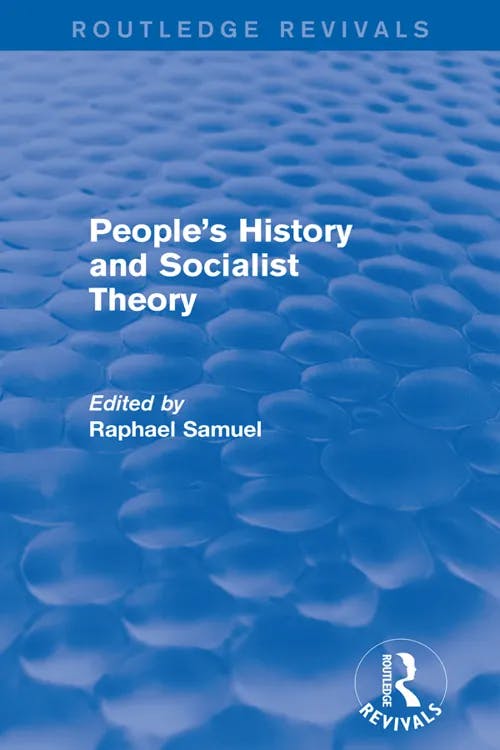What is Great Man Theory?
MA, History (University of Edinburgh)
Date Published: 01.11.2023,
Last Updated: 11.01.2024
Share this article
Definition and origins
Popularized in the 19th century, the great man theory is a historical methodological approach that explains history through the lens of heroes or great men and their actions in historic events. These heroes are characterized by their influence in history, their courage in such historic events as battles, their intellect, and above all their leadership abilities in the face of adversity. As Tod Lindberg explains in The Heroic Heart (2015), what defines a figure in history as being wholeheartedly heroic is the person’s ability to face death:
A hero doesn’t seek death, but neither does a hero let the possibility of violent death deter resolute action toward the purpose at hand. Of those who are so deterred, one may say that death has a power over them even as they live. The fear of death shapes their responses to the events of their lives.
Tod Lindberg
A hero doesn’t seek death, but neither does a hero let the possibility of violent death deter resolute action toward the purpose at hand. Of those who are so deterred, one may say that death has a power over them even as they live. The fear of death shapes their responses to the events of their lives.
These great men are often described as historical agents, acting as the main protagonists in history. According to the great man theory, these heroes are agents of change. As described by Sarah Brown Ferrario in Historical Agency and the 'Great Man' in Classical Greece (2014), historical agency relies on perception and historical interpretation and can evolve. For instance, one historiographer might take the side of the oppressor while another historiographer might take the side of the oppressed, or one historiographer might focus on a particular individual in history while another historiographer might see a different individual as having great historic significance. Ferrario writes,
The assignment of historical agency or responsibility rests significantly upon interpreters’ evaluations of event outcomes: in one reading, the motion of economic forces may ‘start’ a revolution; in another, it may be the collective sense of oppression on the part of the disenfranchised poor; in still another, the same revolution may be ascribed to the man who incites the opening riot. Because this is a project about perceptions, the choice amongst factors such as these is left here to the ancients’ interpretations. (2014)
Sarah Brown Ferrario
The assignment of historical agency or responsibility rests significantly upon interpreters’ evaluations of event outcomes: in one reading, the motion of economic forces may ‘start’ a revolution; in another, it may be the collective sense of oppression on the part of the disenfranchised poor; in still another, the same revolution may be ascribed to the man who incites the opening riot. Because this is a project about perceptions, the choice amongst factors such as these is left here to the ancients’ interpretations. (2014)
The great man theory is primarily attributed to Thomas Carlyle, a 19th century Scottish historian, writer, and philosopher. However, discussions of heroism can be traced back to ancient civilizations, such as Greece. Ferrario explains that a great man in the Greek tradition is a “maker of history” and an “individual inscribed in permanent memory” (2014). In ancient Greece, the responsibility for historic events rested on participants involved in the events who were highly visible to the public, like political or military men. For instance, the outcome of the Trojan War is illustrated in fifth-century Greek writing as belonging to the actions of Agamemnon, not Epeius, who was the architect of the Trojan Horse. The Greeks analyzed and discussed great men in their writing and this concept of focusing on an individual’s achievements is seen beyond the borders of Athens:
The ‘great man’ as interpreted by the Hellenistic age and beyond was neither the cultural result of an isolated, striking biography nor the literary invention of a single intellectual. Rather, he was the evolutionary product of complex historical and social developments during the late archaic and classical periods. His story can be told in particular detail at Athens, but it was by no means confined there. (Ferrario, 2014)
The Greeks laid the foundation for discourse on the concept of heroes throughout history and how these great men should be celebrated. This influenced historians centuries later to reflect on heroism in history and develop theories related to this discourse. This guide will look at some of the early writings that have contributed to the great man theory and will discuss those who supported and criticized the theory.
The makings of a great man: Thomas Carlyle
Thomas Carlyle spoke about heroes and great men in history during his lectures in 1840. These lectures were later turned into a publication called On Heroes, Hero Worship, and the Heroic in History (1840 [2013]), and detailed Carlyle’s thoughts on heroism, the creation of heroes in history, and the ways heroes exert their leadership capabilities. In Thomas Carlyle and the Art of History (1890 [2015]), Louise Merwin Young breaks down Carlyle’s interpretation of what makes a great man:
Carlyle's positive theory of creative forces as the primary determinant in history also rests upon the human quotient [...] Such a great man may be a poet, a prophet, a warrior, a king. He may lead political revolutions like a Cromwell, or spiritual revolutions like a Goethe. Or he may be one of the countless thousands of "nameless innovators" whose inventions and spiritual legacies have made them the intangible "modellers and patterns" of our civilized order.
Louise Merwin Young
Carlyle's positive theory of creative forces as the primary determinant in history also rests upon the human quotient [...] Such a great man may be a poet, a prophet, a warrior, a king. He may lead political revolutions like a Cromwell, or spiritual revolutions like a Goethe. Or he may be one of the countless thousands of "nameless innovators" whose inventions and spiritual legacies have made them the intangible "modellers and patterns" of our civilized order.
According to Carlyle, these men thrive on their personal attributes as well as divine inspiration and embody originality in everything they do. In his first lecture given on May 5, 1840 titled “The Hero as Divinity. Odin. Paganism: Scandinavian Mythology,” Carlyle explains that these heroes changed the course of history with their ability to lead, create, inspire, and accomplish, and their influence can be seen in today’s society. Carlyle states that,
Universal History, the history of what man has accomplished in this world, is at bottom the History of the Great Men who have worked here. They were the leaders of men, these great ones; the modellers, patterns, and in a wide sense creators, of whatsoever the general mass of men contrived to do or to attain; all things that we see standing accomplished in the world are properly the outer material result, the practical realisation and embodiment, of Thoughts that dwelt in the Great Men sent into the world: the soul of the whole world’s history, it may justly be considered, were the history of these. (1840 [2013])
Thomas Carlyle, edited by David R. Sorensen and Brent E. Kinser
Universal History, the history of what man has accomplished in this world, is at bottom the History of the Great Men who have worked here. They were the leaders of men, these great ones; the modellers, patterns, and in a wide sense creators, of whatsoever the general mass of men contrived to do or to attain; all things that we see standing accomplished in the world are properly the outer material result, the practical realisation and embodiment, of Thoughts that dwelt in the Great Men sent into the world: the soul of the whole world’s history, it may justly be considered, were the history of these. (1840 [2013])
Carlyle goes on to describe these men as being “living light-fountains,” as they enlighten the world through their leadership and “manhood and heroic nobleness” (Carlyle, 1840 [2013]). These men are, in Carlyle’s opinion, divinely influenced and inspired.
Alongside the divine hero, Carlyle indicates that the other five types of heroes in history are prophets, poets, priests, writers/philosophers, and kings. Within the lectures, he examines heroes in religion like the Norse god Odin, prophets like the Prophet Muhammad, poets like Dante Alighieri and William Shakespeare, priests including Martin Luther and John Knox, writers/philosophers like Jean-Jacques Rousseau and Robert Burns, and finally kings (or emperors) such as Napoleon Bonaparte. According to Carlyle, all of these great men in history possess unique qualities and are unconventionally genius. Carlyle indicates that historians might turn on these great men, critiquing their ideas, characteristics, works, and decisions, but instead historians should appreciate these heroes and adopt their attributes and ideas. Carlyle explains that great men are essentially the decisive factor in the outcomes of historic events and the outcomes of these events are due to these great men’s genius. According to Carlyle, these great men can influence our own decisions and can assist us in examining ourselves, helping us learn more about our identities.
Supporters of great man theory
Frederick Adams Woods
During the 19th century, historians adopted the great man theory and, as such, it became popular in some scholarly circles. American scholar and researcher Frederick Adams Woods was one of these supporters who saw the great man theory as being useful for understanding the actions and influence of royal families in particular. In his work The Influence of Monarchs (1913), Woods examines hundreds of rulers in Europe dating from the 12th century to the 18th century, commenting on the influence of these rulers in historic events. Woods explains that while his results can’t prove that monarchs caused history or historic events, it can be said that the differences between the conditions in one reign and the next came down to the differences between the monarchs, such as personal characteristics and aptitudes. Like Carlyle, Woods embraces the idea that great men in history, or in this case monarchs in history, might embody unique geniuses and skills to support them in leading nations.
William James
Another scholar who was widely recognized for supporting the great man theory was philosopher and psychologist William James. James’s lectures include discussions on the concept of individuality and how great men are not merely great due to their race, environment, or moments, as stated by other historians, but rather due to their clarity of mind and ability to use their individuality to lead. In James’ sixth lecture titled “Bergson and his Critique of Intellectualism,” as part of the Hibbert Lectures series he participated in at Oxford, he states,
Many of us are profusely original, in that no man can understand us — violently peculiar ways of looking at things are no great rarity. The rarity is when great peculiarity of vision is allied with great lucidity and unusual command of all the classic expository apparatus. (James, in The Complete Works of William James, 1908 [2020])
William James
Many of us are profusely original, in that no man can understand us — violently peculiar ways of looking at things are no great rarity. The rarity is when great peculiarity of vision is allied with great lucidity and unusual command of all the classic expository apparatus. (James, in The Complete Works of William James, 1908 [2020])
Throughout his lectures, James explains that individuals create social change and that their genius and intellect fosters this change. These individuals are able to adapt their skills to certain situations, such as conflicts or battles, and utilize their strengths in times of need. James combined Darwinian thinking to his research, reflecting on men’s disposition to be great leaders due to genetics. In his article for the October 1880 issue of The Atlantic, titled “Great Men, Great Thoughts, and the Environment,” James supports Carlyle with his own analysis of what it means to be a great man. Like Carlyle, James explains that great men are leaders and they must commit to their actions and accept their genetic potentiality to be leaders, leaving self-doubt behind:
We see this power of individual initiative exemplified on a small scale all about us, and on a large scale in the case of the leaders of history [...] Societies of men are just like individuals, in that both at any given moment offer ambiguous potentialities of development. (James, 1880)
According to James in his article, great men’s capabilities to lead are due to their unique physiological natures. James explains that these men have genetic anomalies in their brains which help them offer original perspectives, ideas, and thoughts. Thus, they are able to influence their environments. This deciding factor, the physiological natures of these great men, change the great men’s environments in unique ways. The extent to which these changes in the environment are made, however, depends on how the new environment receives this change. These environments will either preserve or destroy the great man’s genius, as a form of evolutionary selection. If the great man’s genius is accepted and preserved, then the environment is impacted by his influence and this will in turn shape the evolutionary selection process for future individual geniuses. James theorizes that the individual and his social environment are essential to change and evolution. Without the strength and leadership of the individual, society remains stagnant, and without the embrace of the community, the individual’s genius falters.
Critics of great man theory
Herbert Spencer
Among Carlyle’s critics was Herbert Spencer. Spencer was a philosopher, psychologist, sociologist, biologist, anthropologist, and contemporary of Carlyle. Like Carlyle and James, Spencer believed that the evolution of individual genius is something to be noted. However, Spencer did not believe that historical events should be defined based on an individual’s decisions within the event. In fact, Spencer believed that great men are created from their environments, which is in direct contrast to Carlyle and James’s views that great men influence their environments.
In Herbert Spencer and Social Theory (2010), John Offer explains that Spencer believed that just focusing on individualization is detrimental to how society functions, as individuals and society must work in tandem and cannot exist without each other:
A well-balanced social self-consciousness, like a well-balanced individual self- consciousness, is the accompaniment of a high evolution. (Spencer, quoted by John Offer in Herbert Spencer and Social Theory, 2010)
John Offer
A well-balanced social self-consciousness, like a well-balanced individual self- consciousness, is the accompaniment of a high evolution. (Spencer, quoted by John Offer in Herbert Spencer and Social Theory, 2010)
According to Spencer, societies are made of men, as men are the bolts that tie a society together, but an individual man does not hold a higher position than society itself. Offer illustrates Spencer’s views on the individual as being a product of society, as he has been shaped and influenced by his environment and those who came before him. His character, his "creed, morals, knowledge, aspirations" are bred by his society and he in turn re-molds the very environment that has influenced him (Spencer, quoted by Offer, 2010).
Friedrich Nietzsche
Another critic of the great man theory was Friedrich Nietzsche. Nietzsche was a 19th century German philosopher, poet, and composer. His writing examines philosophy, culture, history, and politics and though his writing remains controversial in some aspects, it is still regarded as influential among academics. In his work Ecce Homo (1908 [2012]), published after his death, Nietzsche reflects on his individual role in society. He offers his own perspective on his works, philosophy, and role in society and what it means to be a human being. Though he discusses the prominent role that an individual has in society, he outwardly rejects Carlyle’s views on great men and explicitly states that he does not support the hero cult as he calls it, explaining that if one believes that he is a supporter of the hero theory, then the reader does not understand his philosophy. Nietzsche writes,
He who understood nothing in my work, would deny that I was worth considering at all.—The word “Superman,” which designates a type of man that would be one of nature’s rarest and luckiest strokes, as opposed to “modern” men, to “good” men, to Christians and other Nihilists [...] that is to say, as an “ideal” type, a higher kind of man, half “saint” and half “genius.” . . . Other learned cattle have suspected me of Darwinism on account of this word : even the “hero cult” of that great unconscious and involuntary swindler, Carlyle, —a cult which I repudiated with such roguish malice,—was recognised in my doctrine. (1908 [2012])
Friedrich Nietzsche
He who understood nothing in my work, would deny that I was worth considering at all.—The word “Superman,” which designates a type of man that would be one of nature’s rarest and luckiest strokes, as opposed to “modern” men, to “good” men, to Christians and other Nihilists [...] that is to say, as an “ideal” type, a higher kind of man, half “saint” and half “genius.” . . . Other learned cattle have suspected me of Darwinism on account of this word : even the “hero cult” of that great unconscious and involuntary swindler, Carlyle, —a cult which I repudiated with such roguish malice,—was recognised in my doctrine. (1908 [2012])
Nietzsche indicates that to be a man is to be enough. For Nietzsche, a man does not have to possess divine qualities or be Christlike; a man does not have to possess superpowers to be valued. Rather, he can have value by overcoming hardships and embracing the challenges that human beings must face in their day to day lives.
History from below theory
An alternative view to history that was first discussed in the early 20th century is the history from below theory. History from below theory, or people’s history, is a historical method that focuses on historic events from the perspective of the common people instead of focusing primarily on leaders or heroes in history. People’s history examines marginalized groups and their impact on history, focusing on the oppressed, the poor, the ostracized, and those living on the fringes of society. The theory focuses on the forgotten, those who changed society but were not recognized because they did not have leadership positions or wealth and therefore did not have a voice in their communities. This theory lies in direct opposition to the great man theory, as the great man theory focuses on individuals and their impact on society, while people’s history focuses on ordinary people in a society and how they impacted history. In People's History and Socialist Theory (2016), Raphael Samuel explains how the history from below theory encapsulates the efforts of the common people in history as opposed to particular great leaders and the theory has transformed over the years. He writes,
The term ‘people’s history’ has had a long career, and covers an ensemble of different writings. Some of them have been informed by the idea of progress, some by cultural pessimism, some by technological humanism, as in those histories of ‘everyday things’ which were so popular in 1930s Britain. The subject matter of ‘people’s history’ varies too, even if the effort is always that of ‘bringing the boundaries of history closer to those of people’s lives’. In some cases the focus is on tools and technology, in others on social movements, in yet others on family life […] [people’s history] could be applied, in the present day, to a whole series of cultural initiatives which are to be found mainly, though not exclusively, outside the institutions of higher education, or on their extra-mural fringes. (Samuel, 2016)
Raphael Samuel
The term ‘people’s history’ has had a long career, and covers an ensemble of different writings. Some of them have been informed by the idea of progress, some by cultural pessimism, some by technological humanism, as in those histories of ‘everyday things’ which were so popular in 1930s Britain. The subject matter of ‘people’s history’ varies too, even if the effort is always that of ‘bringing the boundaries of history closer to those of people’s lives’. In some cases the focus is on tools and technology, in others on social movements, in yet others on family life […] [people’s history] could be applied, in the present day, to a whole series of cultural initiatives which are to be found mainly, though not exclusively, outside the institutions of higher education, or on their extra-mural fringes. (Samuel, 2016)
People’s history embraces the idea that the ordinary is just as important as the extraordinary; though great leaders did have an impact on historic events, the ordinary people who continued on with their lives or participated in these battles were just as important in the evolution of society.
Subaltern studies is a further example of history from below. For more information, see our guide “What are Subaltern Studies?”
Closing thoughts
The great man theory highlights the accomplishments of men in history, leaders who have come before us and who exerted their influence on history. While their leadership qualities are admirable, the primary focus on these men as being the sole reasons for historic victories or defeats takes away from the influence of ordinary people who also experienced these historic events.
The theory, however, fails to acknowledge the marginalized in history and those who were not given a voice due to their gender, race, or socioeconomic status. The theory adopts the male gaze, focusing primarily on white, European men and acknowledging their influence in history, all the while disregarding minority voices. While it is interesting to study heroes in history, the great man theory can be problematic, as in the case of Adolf Hitler who was seen as a great man according to many people at the time, a charismatic leader, who convinced others to follow his evil intentions because they recognized him as a hero. However, if studied in conjunction with the history from below theory, both theories can educate people in how leaders and those on the fringes of society helped shape history.
Today, people still subscribe to the great man theory as films, books, and other media still idolize such historic figures as Napoleon Bonaparte and the stories of many great men in history, like Robert the Bruce and William Shakespeare, are still taught in schools. In some ways, we still view history through the eyes of these “heroes” and their achievements on the battlefield, in literature, or in society. The idea of the great man continues to be seen through entrepreneurs, like Steve Jobs, who is seen as an innovative leader in the tech industry, and Elon Musk, who has assumed a cult-like status. Whether they are actually “great” or not, such male leaders will continue to impact future generations as their work inspires people around the world.
Further great man theory reading on Perlego
A Pluralistic Universe (2019) by William James
Thomas Carlyle (2013) by Fred Kaplan
Herbert Spencer and the Invention of Modern Life (2014) by Mark Francis
Nietzsche's Philosophy of History (2013) by Anthony K. Jensen
A People's History of the World (2008) by Chris Harman
World's Great Men of Color, Volume 1 (2011) by J.A. Rogers
Life Below Stairs (2011) by Alison Maloney
Great man theory FAQs
What is the great man theory?
What is the great man theory?
Who supported the great man theory?
Who supported the great man theory?
Who criticized the great man theory?
Who criticized the great man theory?
What is people’s history?
What is people’s history?
Bibliography
Carlyle, T. (2013) On Heroes, Hero Worship, and the Heroic in History. Yale University Press. Available at: https://www.perlego.com/book/1089122/on-heroes-hero-worship-and-the-heroic-in-history-pdf
Ferrario, S. B. (2014) Historical Agency and the ‘Great Man’ in Classical Greece. Cambridge University Press. Available at: https://www.perlego.com/book/3546322/historical-agency-and-the-great-man-in-classical-greece-pdf
James, W. (2020) The Complete Works of William James. Shrine of Knowledge. Available at: https://www.perlego.com/book/2917114/the-complete-works-of-william-james-pdf
James, W. (1880) “Great Men, Great Thoughts, and the Environment,” The Atlantic, (October 1880).
Lindberg, T. (2015) The Heroic Heart: Greatness Ancient and Modern. Encounter Books. Available at: https://www.perlego.com/book/663489/the-heroic-heart-greatness-ancient-and-modern-pdf
Nietzsche, F. (2012) Ecce Homo. Dover Publications. Available at: https://www.perlego.com/book/111318/ecce-homo-pdf
Offer, J. (2010) Herbert Spencer and Social Theory. Palgrave Macmillan UK. Available at: https://www.perlego.com/book/3501510/herbert-spencer-and-social-theory-pdf
Samuel, R. (2016) People’s History and Socialist Theory. Taylor and Francis. Available at: https://www.perlego.com/book/1640590/peoples-history-and-socialist-theory-routledge-revivals-pdf
Woods, F.A. (1913) The Influence of Monarchs: Steps in a New Science of History. The Macmillan Company.
Young, L. M. (2017) Thomas Carlyle and the Art of History. University of Pennsylvania Press, Inc. Available at: https://www.perlego.com/book/3279084/thomas-carlyle-and-the-art-of-history-pdf
MA, History (University of Edinburgh)
Hannah Hamill has a PGDE in Secondary Education (History) from the University of Glasgow and a Master’s degree in History from the University of Edinburgh. She also received a Bachelor’s degree in English from Belmont University. Her research interests include The Troubles in Northern Ireland, Medieval Britain, the American Civil War, and immigration to the southern United States. Her dissertation examined loyalist and republican women’s involvement during The Troubles.

